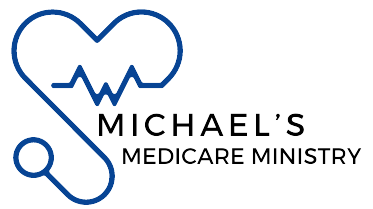Nowadays, Medical insurance services in Beaverton are very important, especially when it comes to safeguarding the health of the family. Despite the common misconception that insurance serves as a safety net for finances, its benefits extend well beyond cost reimbursement. It is crucial to protecting and improving family well-being because it has a substantial influence on the quality, accessibility, and overall experience of healthcare.

Obtaining High-Quality Medical Care
The ability to get high-quality healthcare is one of the biggest benefits of having insurance. Families that have full coverage may contact reliable medical professionals and get the essential medical treatment in a timely manner. This access is essential to halting the progression of minor health problems into more severe illnesses. For instance, early identification and intervention are made possible by increased accessibility to routine checkups, vaccines, and preventative screenings. In addition to enhancing individual health results, this proactive approach to healthcare also benefits the family’s general health.
Peace of mind and financial stability
The expense of healthcare may be prohibitive, particularly for chronic conditions or emergencies. Insurance coverage ensures that families do not have to sacrifice their health for financial reasons by easing the financial stress connected with medical bills. The assurance that medical costs will not result in substantial debt or unstable finances is essential for bringing comfort. Instead of worrying about the expenses, families can concentrate on healing and preserving their health, which is essential for mental and emotional wellbeing.
Entire Protection Against Chronic Illnesses
Asthma, diabetes, and pressure are examples of chronic illnesses that need for constant care and medicine. Insurance helps families coping with these disorders tremendously by paying for required therapies, prescription drugs, and routine doctor visits. In order to properly manage chronic illnesses, avoid complications, and guarantee a higher quality of life, this ongoing treatment is essential. For family members with chronic conditions, access to individualized treatment plans and specialized care may also greatly enhance health outcomes.
Support for Mental Health
Growing awareness of the significance of mental health for total well-being has occurred in recent years. Therapy and counseling are two common mental health therapies that are covered by comprehensive insurance policies. Families need this help since mental health problems may affect everyday functioning, relationships, and family dynamics as a whole. Having access to expert assistance may significantly improve the way that stress, anxiety, depression, and other mental health issues are managed, as well as foster a happier and more loving family atmosphere.
Promoting Preventive Healthcare
The value of preventative treatment, which is crucial for preserving long-term health, is often highlighted by insurance. Regular check-ups, immunizations, and screenings are examples of preventive interventions. When possible health problems are identified early on, when they are most curable, these treatments are essential. Preventive care for families entails safeguarding each member individually as well as making sure that health concerns don’t spread across the family. Over time, the family will benefit from this active approach’s contribution to the development of a culture of health knowledge and responsibility.
promoting the health of mothers and children
The health of the mother and the kid are vital components of a happy household. Because insurance covers prenatal appointments, labor, and postnatal care, it is essential for expecting women and their infants. By guaranteeing that the mother and child get the required medical care, this complete coverage lowers the risks related to pregnancy and delivery. Furthermore, pediatric care—which includes immunizations and routine examinations—is essential for tracking and enhancing children’s health as they develop. The basis for a good start in life is having access to high-quality care throughout these critical phases of development.

Getting Around the Healthcare System
Navigating the healthcare system may be difficult due to its complexity. Insurance companies often give families with information and assistance to help them choose the best healthcare providers, understand their coverage, and make well-informed choices about their treatment. This advice is very helpful, particularly when adjusting to new diagnoses or specialist treatments. Insurance companies are essential in ensuring that people get timely and adequate treatment by helping families navigate the healthcare system.
Resolving Health Inequalities
Numerous variables, such as socioeconomic position, geographic location, and resource accessibility, contribute to health inequalities. By granting access to vital healthcare treatments that may otherwise be out of reach or pricey, insurance might help reduce some of these discrepancies. This access is essential for bridging the gap and guaranteeing that all family members get proper treatment for families in underprivileged locations. Insurance helps create a more equitable and inclusive healthcare system by advancing health equality.
The Function of Health Promotion Initiatives
Preventive health programs, which emphasize wellness efforts, lifestyle modifications, and illness prevention, are often included in insurance policies. These initiatives often provide families tools and encouragement to change to better habits, such cutting down on smoking, controlling weight, and increasing physical activity. Participating in these activities may enhance overall quality of life, lower the risk of chronic illnesses, and result in major health gains. Involvement in preventive health programs for families creates a supportive atmosphere for beneficial changes by fostering a collective commitment to health.
Prospective Aspects to Take into Account
The importance of insurance in family health is only increasing as the healthcare system changes. The way families receive and use healthcare is changing as a result of developments in telehealth services, tailored treatment, and medical technology. Insurance policies are becoming more flexible and extensive in their coverage choices as they adjust to these developments. To make the best decisions for their health requirements, families must be aware of these trends as well as their insurance alternatives.




